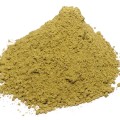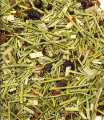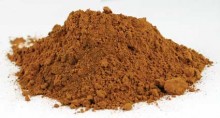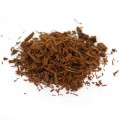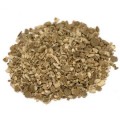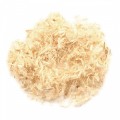 Loading... Please wait...
Loading... Please wait...- Home
- About Us
- Shipping, Returns & FAQ's
- Contact Us
-
For Your Information
- Canadian Customers Have a Choice if Shipping Via UPS
- Aura Cacia Homemade Aromatherapy Recipes
- Bella Nella Altered Art & Paper Crafts Blog
- Forms of Herbal Preparations
- Laundry Tips To Conserve Energy Blog from The Laundress
- The Story of Frontier Natural Products Co-Op
- Sovereign Silver Hydrosol and Aloe Protocol Stops Downward Spiral of Gut Dysbiosis
- Disclaimers
- Recommended Links
- RSS/Recent News
- The Story of Typhoon Housewares
- Reviews/Testimonials
- Raw Ingredients for Mfg
- Home
- Supplements
- Prostate/Bladder
- Pygeum Bark Bulk
Pygeum Bark Bulk
Product Description
Medicinal Uses: Libido and Prostate*
Pygeum is an evergreen tree in the rose family growing up to 150 feet (50 m) tall, found across Africa at elevations of 3,000 feet (1,000 m) or higher. Sometimes referred to as the African Cherry because of its close relationship to the cherry tree, and like the cherry it's a member of the rose family .The dull gray-brown bark of this towering evergreen is the part used for traditional medicinal purposes by indigenous peoples who pulverized the bark, and used it as a tea to treat urinary tract infections. Pygeum has become an endangered species in parts of Africa because of the high demand.
The terpenes in pygeum have an anti-swelling effect. Terpenes are present in many plants that produce fragrant essential oils. Prostaglandins are inflammatory hormones that tend to accumulate in the prostates of men with BPH. Research indicates that the phytosterols in pygeum interfere with the formation of these prostaglandins, helping to reduce inflammation and swelling of the prostate. When taken correctly, pygeum is considered one of the safest herbs used for male health, and often is combined with saw palmetto for maximum results.
Pygeum is a herbal remedy containing extracts from the bark of Prunus africana. It is used to alleviate some of the discomfort caused by inflammation in patients suffering from benign prostatic hyperplasia (enlarged prostate). Bark extract is marketed under the brand-names of Pigenil in Italy and Tadenan in France and used commonly in its natural forms in traditional African medicine.
When it comes to the removal of uric acid, this African pygeum bark is able to aid in flushing and dissolving all the existing uric acid residues or deposit that are found in the body.
The Natural Standard Research Collaboration states:
Pygeum (P. africanum bark extract) has been observed to moderately improve urinary symptoms associated with enlargement of the prostate gland or prostate inflammation. Numerous human studies report that pygeum significantly reduces urinary hesitancy, urinary frequency, the number of times patients need to wake up at night to urinate, and pain with urination in men who experience mild-to-moderate symptoms. However, pygeum does not appear to reduce the size of the prostate gland or reverse the process of BPH. It is unclear how pygeum compares to the effectiveness or safety of other medical therapies, such as prescription drugs (e.g. alpha-adrenergic blockers or 5-alpha reductase inhibitors), surgical approaches, or other herbs/supplements such as saw palmetto. There is ongoing study in this area. Patients with urinary symptoms or BPH should speak with their healthcare professional about the various available treatment options.
Preparation Methods & Dosage
50 to 200 mg. It can be taken in a single or divided dose.
Pygeum can be used with saw palmetto, stinging nettle root, and/or bee pollen to treat benign prostatic hyperplasia, and made into hair loss prevention shampoos with saw palmetto and stinging nettle root.
Side Effects
The symptoms of BPH and prostate cancer are similar, hence, if you are thinking of using pygeum bark extract for enlarged prostate treatment, then make sure you determine the condition first, before you start using the extract. There are not many side effects associated with pygeum bark. However, in rare cases, side effects like stomach upset, nausea, headache and visual disturbances have been noticed when the first dose is taken.
If you are going to use this as an alternative medicine, make sure you consult your doctor first. Also, it is important that you follow the recommended dosage, to avoid any side effects, and use the extract for recommended time to get its health benefits
Botanical Name: Prunus africanum/africana; Family: Rose Family
aka: red stinkwood, African plum, African prune, natal tree, kirah
Origin: Africa/USA
Notes: Kosher. Non-irradiated
Specifications are subject to change without notice.
* FDA Disclaimer
Reference
wikipedia.org
Buzzle
You Recently Viewed...
Currency Converter
Choose a currency below to display product prices in the selected currency.




